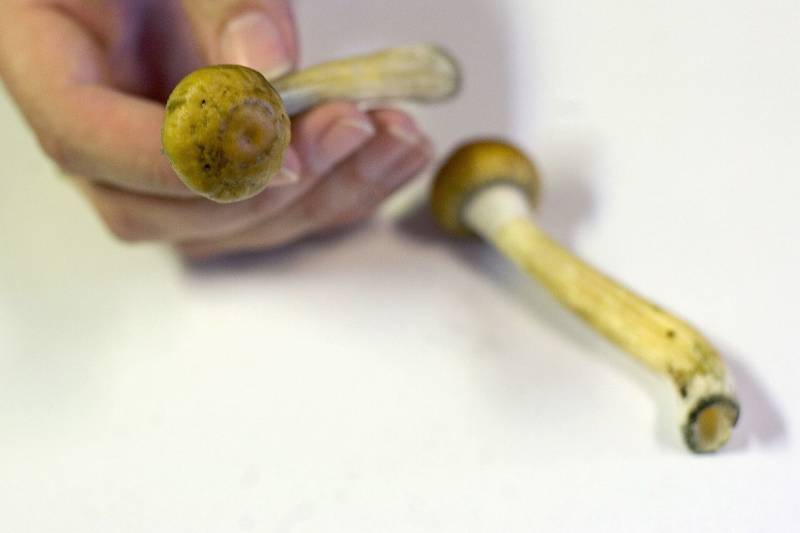The legislation would allow doctors to prescribe psychedelics for treating mental health disorders such as depression and PTSD. It would also allow psychedelics for personal use, and expunge criminal records for people with prior convictions for possession.
In May, the medical journal Nature Medicine published results of a study using the psychedelic drug MDMA, also known as ecstasy, to treat post-traumatic stress disorder among research participants who received the drug, along with counseling. Sixty-seven percent felt their condition had improved to the extent that they no longer qualified for a diagnosis of PTSD.
This study adds to a small but growing body of scientific literature exploring the use of psychedelics like MDMA, LSD and psilocybin as therapy for a range of mental health conditions, including depression, eating disorders and end-of-life anxiety. The bill now working its way through the state Legislature aims to build on this momentum.
While many veterans and drug advocacy groups support the bill, opponents say the legislation would lead to an increased rate of psychedelic drugs sold and recreationally used. On May 14, KQED Forum host April Dembosky talked to the following people involved in this debate:
- Juliana Mercer, a Marine Corps veteran who used psychedelic therapy to overcome her trauma from her time serving in Iraq and Afghanistan
- Sen. Scott Wiener, represents San Francisco in the state Senate
- Dr. Jeffrey Lieberman, former president of the American Psychiatric Association and chairman of the Department of Psychiatry, Columbia University College of Physicians and Surgeons
- Larry Morse, legislative director, California District Attorneys Association
- Dr. Robert Grant, professor of medicine at UCSF and prominent academic voice around decriminalization and psychedelic therapy
The following interview has been edited for length and clarity.
A Veteran’s Personal Experience
Juliana Mercer graduated military boot camp one week before Sept. 11, 2001, and served in the United States Marines for 16 years. She served two tours of duty, one in Iraq and one in Afghanistan.
Juliana Mercer: Between Iraq and Afghanistan, where I saw the traumas of war in between those two deployments, I spent five years working with our wounded in San Diego at the naval hospital, and I did everything that was non-medical for helping them in a holistic way to get back into their lives with their injuries.
During those five years I saw the direct result of war; not just the physical trauma, but the mental trauma. And I did my job every day and did it happily because I was helping my brothers and sisters. But losing quite a few fellow Marines and other veterans to suicide between two war deployments really took a toll on me.
I didn’t realize that they had taken a toll on me because I was doing my job every day. A few years after exiting the service and continuing to work with nonprofits that help veterans, I felt just this loss of purpose. Even though I was doing purposeful work, I had a loss of who my authentic self was. My first interaction with these medicines really opened up the acknowledgment that I had suffered a lot of loss, and there was a lot of grief in there. It started to help me unpack all of the grief that I had, and hadn’t revisited because I was so busy doing my job and taking care of my Marines.

